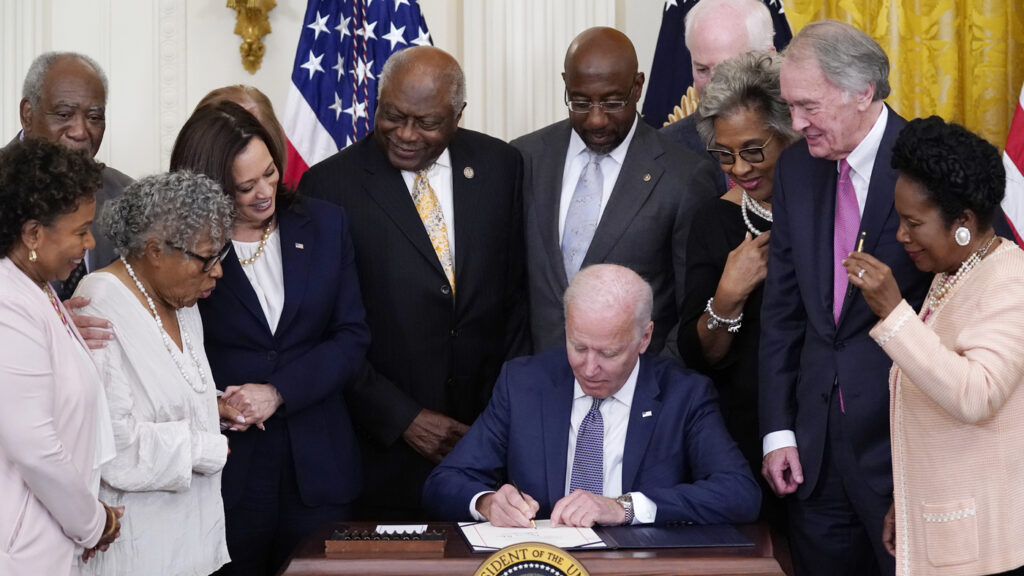Juneteenth is a holiday observed on June 19th to mark the day in 1865 when Union soldiers arrived in Galveston, Texas, and told the last group of enslaved people that they were free. This happened more than two years after President Abraham Lincoln issued the Emancipation Proclamation in 1863, which was supposed to free slaves in Confederate states. However, the news and enforcement took time to reach many parts of the South—especially Texas.
Even after the Civil War ended, slavery wasn’t fully abolished. In some places, enslaved people were not told they were free until the government intervened. It wasn’t until the 13th Amendment was passed in December 1865 that slavery became illegal in the entire United States, including in some Union states like Delaware and New Jersey.
The first Juneteenth celebration took place in 1866. Over time, it evolved into a cultural tradition within African American communities, often including parades, barbecues, and the use of the color red to symbolize resilience and sacrifice. Emancipation Park in Houston, established by formerly enslaved people in 1872, remains a focal point for Juneteenth festivities.
Interest in Juneteenth faded in the early 1900s, partly because schools and employers didn’t teach or observe it. But the holiday became popular again during the Civil Rights Movement and has continued to grow. On June 17, 2021 President Joe Biden signed the Juneteenth National Independence Day Act into law.

Today, people celebrate Juneteenth in many ways—from festivals and barbecues to supporting Black-owned businesses or learning more about history. The holiday reminds us that freedom in the U.S. came slowly and unevenly—and that the fight for equality is ongoing.
You can observe Juneteenth with your community by attending Wakefield’s Juneteenth Flag Raising event on June 18th, at the Americal Civic Center (467 Main St.). The event will begin at 6:30 PM.
And you can learn more about Black History in the US using a unique resource we offer called The HistoryMakers. It is the nation’s largest African American video oral history collection, full of interviews of ordinary (and some famous!) people from the Black community talking about their lives and, by extension, our country’s history. Try a search on Juneteenth by going to the Research & Learning Resources page on our website. Just scroll down to find The HistoryMakers and sign in with your library card and pin.
Finally, here’s a list of fiction and nonfiction titles related to Juneteenth. Click on the cover of a book to place a hold.


